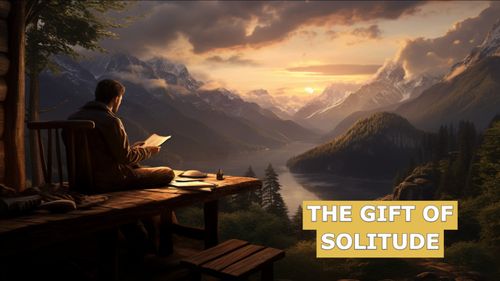The Psychology of Solitude: Why We Need Alone Time More Than Ever
Jan 24, 2024 · 2 mins read
0
Share
Solitude isn't loneliness; it's a chosen separation for growth. In an era where our thoughts are drowned in notifications, silence is not just golden; it's revolutionary.
Save
Share
Newton discovered gravity in solitude. Without the Great Plague's forced isolation, that apple might just have been lunch. Sometimes, history’s greatest leaps come from being alone with one’s thoughts.
Save
Share
The brain's "default mode network" activates in solitude, turning inward to engage in introspection and creativity. It's not idleness; it's the mind's playground.
Save
Share
Solitude has been linked to increased empathy. When we step back from the social whirlwind, we gain the space to reflect on others' perspectives, fostering deeper connections when we return.
Save
Share
Thoreau retreated to Walden Pond and found that solitude was life's greatest companion. In disconnecting, we reconnect with what truly matters.
Save
Share
Virginia Woolf's "A Room of One's Own" isn't just about physical space but the mental room to think, create, and be. Every mind deserves its own room.
Save
Share
Studies suggest that solitude can enhance concentration and productivity. The quiet not only allows us to hear our own thoughts but to deeply engage with them.
Save
Share
In solitude, we confront our true selves, stripped of societal masks. It's in these moments of isolation that we often find our most authentic selves.
Save
Share
The Japanese concept of "Ma" emphasizes the importance of the space between things, including moments of silence and solitude for balance and harmony.
Save
Share
Embracing solitude is like taking your soul out for a coffee; it's a date with your inner self. In the rush of everyday life, don't forget to RSVP.
Save
Share
0
